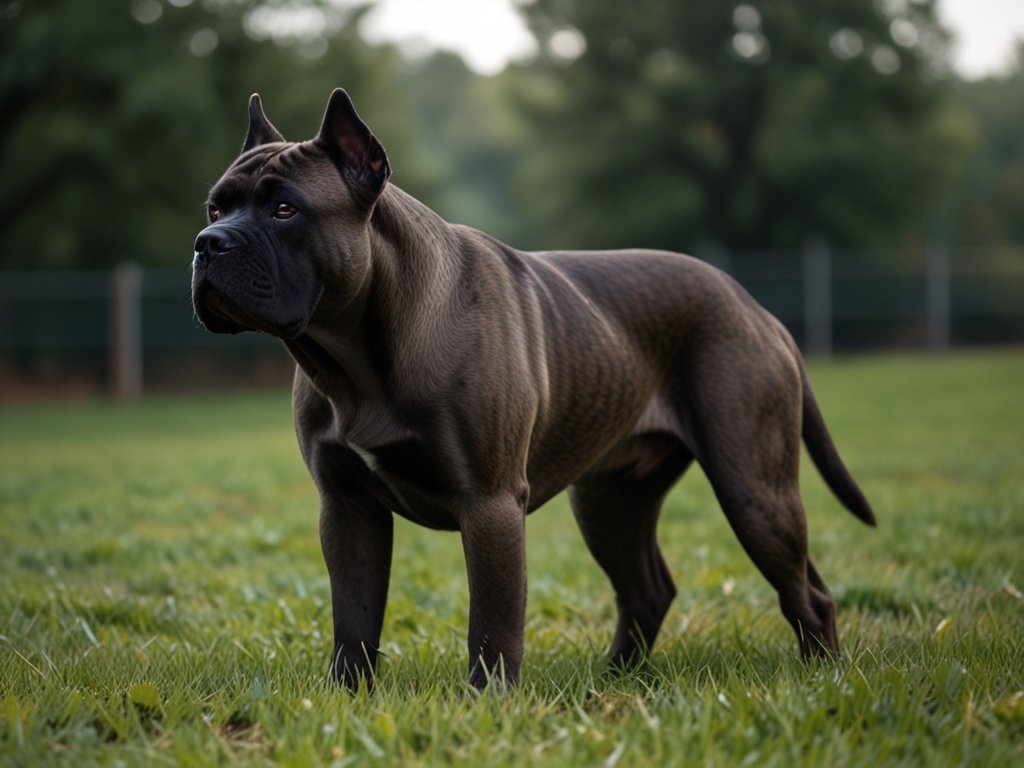- Introduction
- Physical Characteristics of the Cane Corso
- Cane Corso: The Ultimate Guardian Dog
- Guarding Capabilities of the Cane Corso
- History and Origins of the Cane Corso as a Guard Dog
- Comparison with Other Guard Dog Breeds
- Cane Corso vs Other Guard Dog Breeds
- Training Your Cane Corso as a Guard Dog
- Conclusion
Introduction
The Cane Corso, a large and powerful breed with deep roots in Italian history, is widely considered one of the best breeds for guarding and protection. With its physical strength, intelligence, and natural protective instincts, the Cane Corso guard dog excels in roles where security and loyalty are paramount. In this article, we will explore the Cane Corso's key attributes as a protector, its historical background, and how it compares to other guard dog breeds. Whether you're considering a Cane Corso as a guard dog or already own one, this guide provides essential insights.
Physical Characteristics of the Cane Corso
Cane Corso: The Ultimate Guardian Dog
Physical Characteristics
Guardian Capabilities
- Strong natural protective instinct
- Highly alert and territorial
- Powerful bark to alert of intruders
Temperament
History
Ancient Italian breed, originally used for hunting and guarding cattle. Name derives from Latin "cohors" meaning "guardian" or "protector". Nearly extinct in mid-20th century, revived in the 1980s.
Comparison with Other Guardian Breeds
Training Tips
- Early socialization is crucial
- Consistent training required
- Responds well to positive reinforcement
- Professional training recommended
1. Size and Strength
The Cane Corso is an imposing figure, with a muscular build that exudes power. The breed’s physical attributes make it well-suited for guarding roles.
- Weight: The Cane Corso weighs between 40-50 kg (88-110 lbs), giving it the size and mass to deter potential intruders.
- Height: These dogs can stand up to 70 cm (28 inches) at the withers, adding to their formidable presence.
- Bite Force: The Cane Corso is known for its considerable bite strength, which is among the strongest of all dog breeds. This makes them an effective deterrent in situations requiring protection.
Image: A Cane Corso standing alert, showcasing its powerful and muscular frame.
Guarding Capabilities of the Cane Corso

1. Natural Protective Instincts
One of the Cane Corso's most significant qualities is its natural instinct to guard. These dogs have a long history of protecting livestock and properties, and this instinct remains strong in modern Cane Corso guard dogs.
- Alertness and Territoriality: Cane Corsos are highly alert and territorial, making them excellent at guarding homes and properties. Their ability to detect and respond to potential threats sets them apart as one of the best guard dog breeds.
- Barking as an Alert System: The Cane Corso has a deep, powerful bark that effectively alerts its owners of potential intruders. This feature alone can deter many would-be trespassers before they even approach.
2. Temperament for Protection
Despite their imposing appearance, Cane Corsos are known for being loyal and affectionate with their families. They balance protectiveness with an intuitive understanding of when to act, making them ideal for families.
- Loyalty and Affection: Cane Corsos form deep bonds with their family and are naturally protective of their loved ones. Their loyalty makes them highly effective as guardians, as they are always alert to potential threats to their family.
- Stranger-Wary: While Cane Corsos are affectionate with their family, they are naturally wary of strangers. This cautiousness is a critical component of their effectiveness as guard dogs, ensuring they remain vigilant in unfamiliar situations.
Image: A Cane Corso showing its natural alertness and protective stance when approached by a stranger.
History and Origins of the Cane Corso as a Guard Dog

1. Ancient Roman Roots
The Cane Corso has a rich history dating back to ancient Rome, where it was used as a war dog and a protector of homes and livestock. The breed's name derives from the Latin word "cohors," meaning "guardian" or "protector."
- Cohort of Rome: The Cane Corso was originally bred to assist Roman soldiers in battle and later transitioned to work on farms, protecting livestock from predators and guarding estates.
- Near Extinction and Revival: By the mid-20th century, the breed almost became extinct due to the mechanization of agriculture. However, dedicated breeders revived the Cane Corso in the 1980s, restoring its legacy as a versatile working dog.
Image: A historical depiction of the Cane Corso, reflecting its role as a protector in ancient Rome.
Comparison with Other Guard Dog Breeds
Cane Corso vs Other Guard Dog Breeds
The Cane Corso offers a balanced combination of strength, agility, and temperament, making it an excellent choice for a guard dog.
1. Agility and Athleticism
When comparing the Cane Corso to other guard dog breeds, its agility and athleticism stand out. While some other molosser breeds are powerful but slow, the Cane Corso is both agile and quick, making it highly effective in both defensive and offensive roles.
- More Athletic Than Molossers: Compared to other molosser breeds, like the Mastiff, the Cane Corso is more agile, allowing it to respond quickly to threats.
- Less Aggressive Yet Equally Effective: Although the Cane Corso is less aggressive than certain guard breeds, such as the Rottweiler, it is just as effective when trained properly. Its balanced temperament ensures it acts appropriately without unnecessary aggression.
2. Exercise Requirements
While Cane Corsos require regular exercise to maintain their strength and agility, they are less demanding in this regard compared to more active working dogs like the German Shepherd.
- Moderate Exercise Needs: The Cane Corso needs less exercise than highly active breeds like the German Shepherd, but more than heavier breeds like the Neapolitan Mastiff. A daily walk or exercise session is usually sufficient to keep the Cane Corso guard dog in top condition.
| Guard Dog Breed | Weight | Exercise Requirement | Aggression Level |
|---|---|---|---|
| Cane Corso | 40-50 kg | Moderate (daily exercise needed) | Balanced |
| German Shepherd | 30-40 kg | High (requires a lot of activity) | Moderate |
| Rottweiler | 50-60 kg | Moderate | High |
| Neapolitan Mastiff | 50-70 kg | Low | Low |
Training Your Cane Corso as a Guard Dog
Training a Cane Corso guard dog requires dedication and patience, but with the right approach, you can maximize the breed’s natural protective instincts.

1. Early Socialization
Cane Corsos need to be socialized early to ensure they grow into confident, well-rounded adults. Socialization helps prevent fear-based aggression and ensures your dog can distinguish between normal situations and real threats.
- Exposure to Different Environments: It’s crucial to expose your Cane Corso to a variety of people, places, and situations during its early months. This will help the dog become comfortable with everyday environments while remaining alert to potential dangers.
2. Positive Reinforcement in Training
Cane Corsos respond best to positive reinforcement techniques, such as treats, praise, and play. Using positive methods strengthens the bond between the owner and the dog, ensuring loyalty and responsiveness.
- Consistent Commands: Cane Corsos thrive when given clear, consistent commands. Every family member should use the same commands to avoid confusion, which helps the dog understand what is expected.
3. Professional Guard Dog Training
For those looking to fully unlock their Cane Corso’s potential as a guard dog, professional training may be necessary. A professional guard dog trainer can teach your dog how to patrol property, assess threats, and respond to specific commands.
- Protection Drills: Cane Corsos can be trained to respond to protection drills, such as guarding specific areas or following handler instructions during intruder scenarios. This specialized training ensures they are fully prepared for real-life situations.
Image: A Cane Corso undergoing professional guard dog training, learning to protect a perimeter.
Conclusion
The Cane Corso is undoubtedly one of the best breeds for guarding and protection. With its natural instincts, physical power, and intelligent temperament, this breed excels in guarding roles for families and properties alike. Whether you're looking for a loyal family protector or a property guardian, the Cane Corso guard dog offers the perfect balance of affection, loyalty, and strength.
With early socialization, consistent training, and possibly professional assistance, your Cane Corso will not only be a formidable guard dog but also a loving and loyal companion.
Thinking About Training a Cane Corso as a Guard Dog? Share Your Thoughts and Ask for Advice!
Have you considered training a Cane Corso as a guard dog, or do you already own one? Share your experiences or ask questions in the comments below! For more tips and guidance, check out our Cane Corso Guard Dog Training Guide.


Leave a Reply